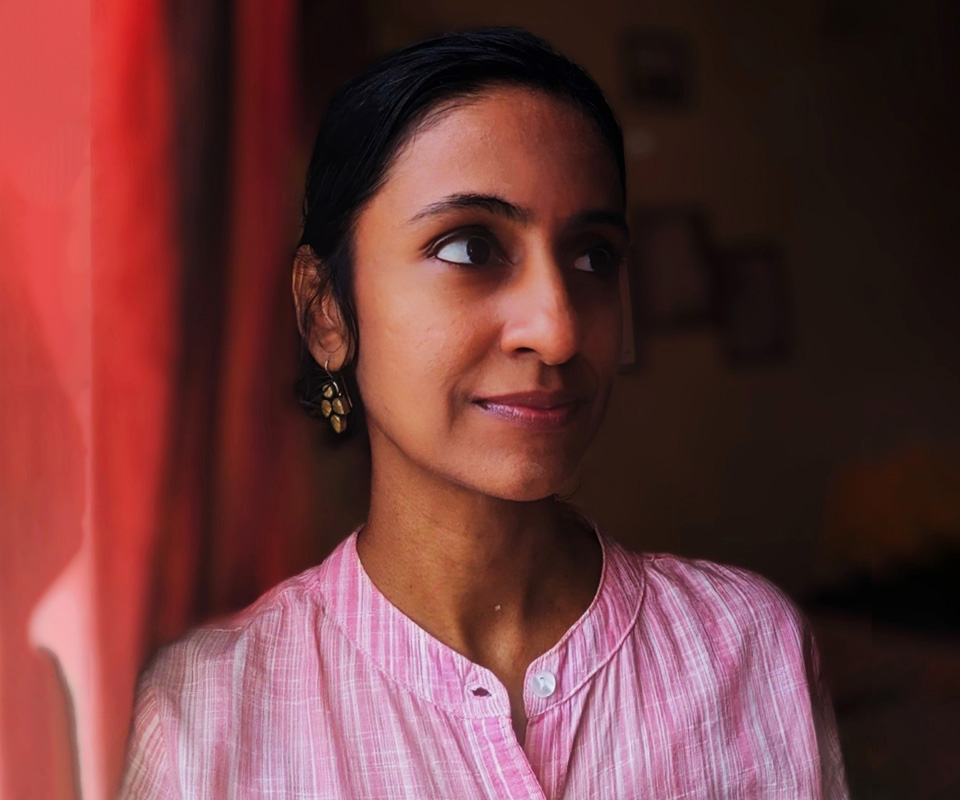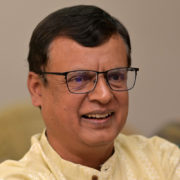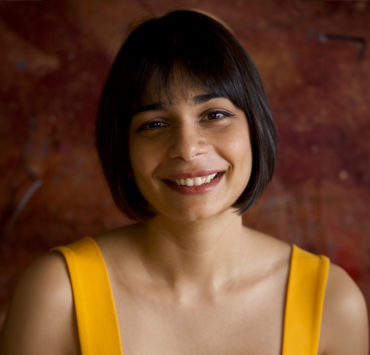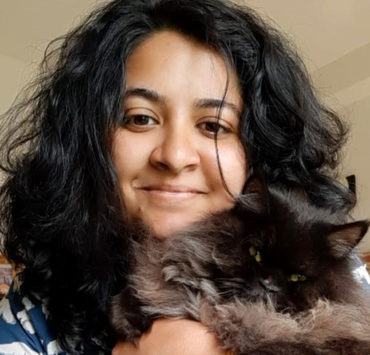Think back to a moment when you made a split-second decision. What if you had chosen differently? What if you could rewrite your life? In Dharini Bhaskar’s Like Being Alive Twice, we explore this possibility through two diverging timelines—the life that Poppy actually leads, and the life she could have, if only she walked through a different doorway.
Like Being Alive Twice is the story of one relationship, between Poppy and Tariq, across years, and in two parallel stories. We meet these characters again and again, as situations and circumstances change depending on the choices they make. Their story takes place against the backdrop of a speculative but recognisable world—one where access to spaces is surveilled, limited, and controlled depending on an opaque point system, where a clear and devastating division is slowly developing amongst sections of the population. In a world of walls, Bhaskar zeroes in on the possibilities offered by open doors.
Dharini Bhaskar spoke to Helter Skelter about her love for poetry, the reverberating effects of a microsecond, and how privilege structures the world we live in.
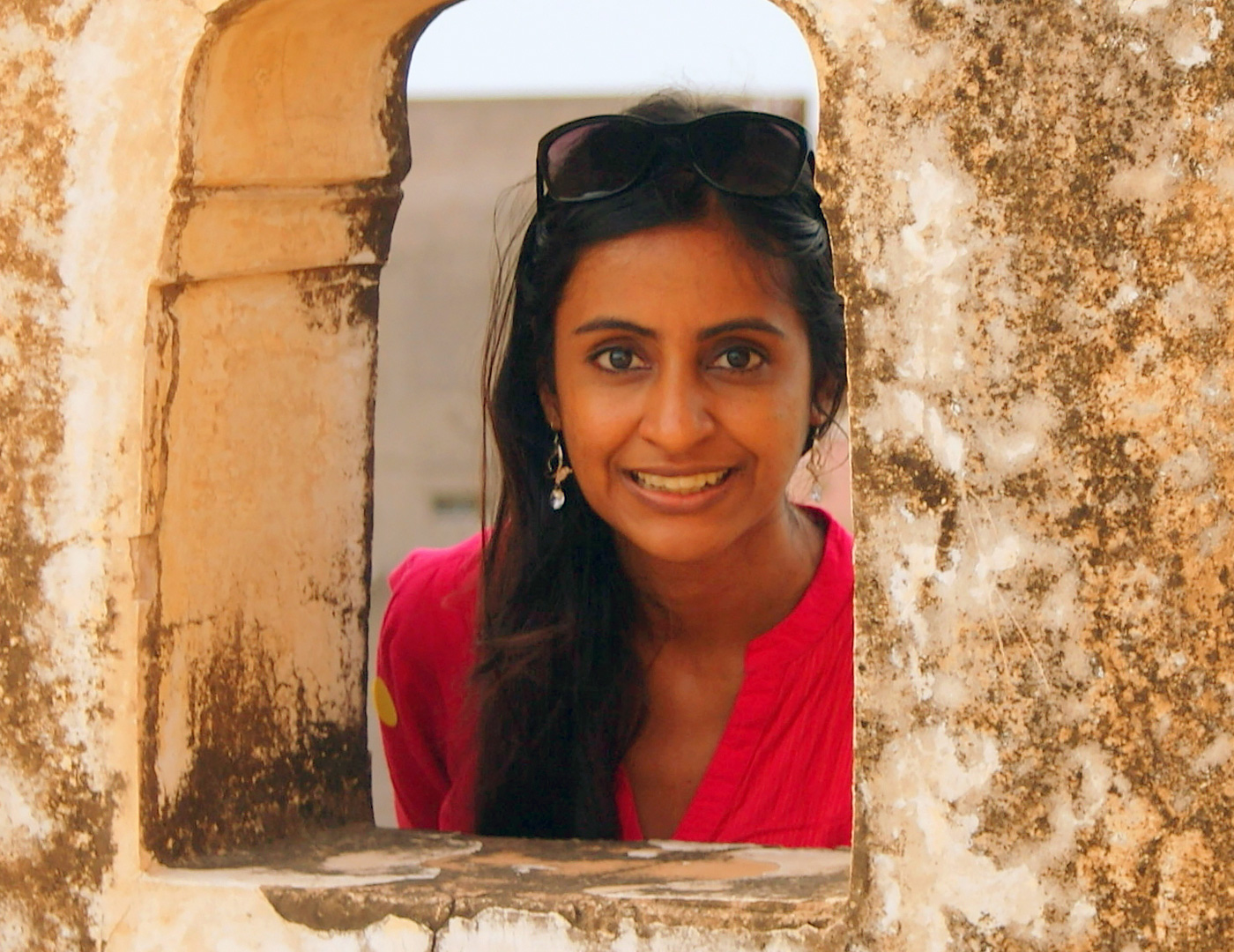
Your new novel, Like Being Alive Twice, and your first novel, These Our Bodies Possessed By Light, both have titles that you’ve taken from poetry. Tell us about how you arrived at the title for this book and your relationship with poetry. Poems and poets are referenced so much in your work.
Poetry is my first love. In another life, I would be a poet, but it’s not meant for this life, because presently, I’m too much in awe of the form—if I even think of writing poetry, my body’s reduced to a tremor. So there’s no question of attempting poetry, but I read it, and I worship it. I have poets on my altar. It was necessary for me to borrow titles from poems that spoke to me, and somewhere along the way, if the reader of prose finds his way to poetry, I’m only too happy. Poetry needs more readers, and if prose is the gateway to poetry, so be it. My hope is that when you read anything that I write, you’ll find your way to a bookshop, and you pick up a collection of poetry. I was very conscious about choosing fragments of poetry for the titles.
About the second book: the title [Like Being Alive Twice] draws from Linda Gregg, who features in the book at various points. One of the thoughts motivating me, besides the fact that I really love Linda Gregg’s poetry, was that for readers of poetry, sooner or later, we all find our way to a poet named Jack Gilbert. He’s a giant, really, in the space of contemporary English poetry. And because Jack mentions Linda, a woman he had a long relationship with, in various poems, we stumble into Linda Gregg’s poetry, and then we start reading her. So somewhere along the way, Linda’s biography becomes an extension of Jack’s, and Jack is the doorway through which we access Linda Gregg.
My thought was, what would it be like if we accessed Jack Gilbert through Linda Gregg? What if his biography became an extension of hers? I will never know what that’s like for me, because, like so many others, my doorway was Jack Gilbert. But if there are people out there who haven’t read either, I hope that they read Linda Gregg first, and perhaps through her, find a way to Jack Gilbert. Maybe the way they read their poetry will shift because the access has shifted. More than anything else, I wanted Linda Gregg to have an identity and a space of her own, without in any way diminishing her association with Jack Gilbert, because clearly that was a very productive and very rich association, artistically. At the same time, I wanted her to have a voice and an identity of her own. I was very conscious of the fact that I wanted to pull the title out of one of her poems.
I love that you mentioned doorways, because that’s my next question. The first image in your book, for readers, is the image of these two doors and the alternate lives they lead to. For you, what was your starting point for the story? What did you start with?
Something that is true for my last book, and equally true for this book—and I don’t know if this will always be a pattern, but for now it seems to be—is that I find a word I can wed myself to. And then, like a beehive, everything clusters around that word. For the first book, the word was Scheherazade—a woman who spun fiction to keep herself alive. For this book, the word was Poppy. It so happens that in my house I have this photograph, of a broken-down, crumbling wall. From this wall, you see flowers emerging, and these flowers are poppies. I was there when the photographer took the picture, on a remote island in Greece where nobody lived, where there was a completely broken-down wall, with these bright red flowers emerging, and it is beautiful. But what also struck me was how poppies seemed to emerge in these spaces that are either desolate or torn.
It reminded me of a poem, ‘In Flanders Fields’, where the poet talks about a war zone and a battlefield, and you have rivers of blood flowing everywhere, and in the midst of this, you have poppies. As men walk over the earth, the seeds that are lying dormant on the surface, and the sun and the rain do the work, and you have poppies emerging as flowers. Besides the sound of the word itself, I found the word very rich in symbolism, because what it seemed to speak was death, destruction, darkness, mayhem, all of that—but it also spoke of possibility. The idea of possibility, I think, is seminal to this book. When I speak of doorways, when I speak of paths that life can lead us down, or paths we missed, a lot of it is about possibility and whether we allowed a certain possibility space to grow. A poppy, the flower itself, was symbolic of that. As a natural, logical step, I decided to name the protagonist Poppy—her name is Priyamvada, but everyone calls her Poppy, and her mother has an intimate association with the word as well, as we later find out. So that was the word around which everything clustered.
“The idea of possibility, I think, is seminal to this book.”
In both your novels, there’s a major emphasis placed on split-second decisions, and how much they can change your life, and also reverberate through communities, and through generations. What draws you to that?
I think the idea of time is so central to fiction, and how we play with it. We can play with it in a linear manner, and we can chronicle things. The novel allows you to chronicle things across the space of a year, two years, a decade, longer. But equally, I find that if we flip it over, the novel can also make a moment last across 600 pages if we so desire. For me, it’s the moment in its smallest fragment that I find most exciting, more than the vast expanse. I’m equally intrigued by the moment as a nanosecond, and I want to know what it can do. I think it is Joan Didion who said “life changes in the instant, the smallest instant”… I’m misquoting her slightly, but something along those lines. That has always been something that speaks very deeply to me, that little moment, and how everything could change in that singular incident.
Up until the point where the timelines diverge, there is a shared backstory to both timelines in your book, and then we read alternating chapters from the two possible timelines. How did you approach structuring your book?
When I started writing the book, it was very clear to me that I want to look at things annually. Something driving me was the desire to see if the story could be rewritten. I wanted to see if a story set in a certain year, say seven years ago, could be rewritten such that things and situations would alter dramatically for the protagonist, and for the people in her life. The gap of a year gave me enough space to look at things from a certain degree of distance, yet also trap a moment. The intention always is to trap a moment, but I also wanted some breathing room between moments. A span of a year gave me that breathing space. So I started with seven years ago, and then moved on to six years ago, and so on.
In each of these chapters, the time span isn’t very large—there is a moment that is in focus. It then spreads outward, but there’s always a moment that is the driving point of every chapter. I think these are the moments that interest me, the microseconds, the minute, these are the things that interest me more than the entire span of 365 days.
So I’d always start with a moment and then build outward from there, while keeping a gap of a year. Once that was clear structurally, I could alternate chapters and I could build and rebuild. My intention and desire was to see where this would take me—whether rebuilding in some way would shift destiny, or whether it wouldn’t. That was definitely one of the questions driving me forward. I had no answers. When I started writing the book, I didn’t even know where the story would take me. I wanted to see where it would go. I was curious. So I let the story lead me.
“The novel allows you to chronicle things across the space of a year, two years, a decade, longer. But equally, I find that if we flip it over, the novel can also make a moment last across 600 pages if we so desire.”
Some things are common across both experiences, both timelines. In one timeline, Poppy has read Fitzgerald, and in the other she didn’t read This Side of Paradise. There are some people that recur across both timelines, but they’re interacted with differently. How did you think about which elements would be central to the story, in both timelines, and how the way that the characters interacted with them would depend on the choices they made earlier?
I think the characters were central for me, and so I did know that I would keep referencing them across—Poppy’s mum, Tariq’s mum, and so on. For me, these were seminal figures in the book, even if they didn’t have very much to say—their presence was important. I made it a point to have them weave in and out of almost all the chapters; that was a very conscious decision. The conversations they had, based on the choices they made at various points, were also central.
Apart from that, I did try and weave in a bit of Linda Gregg at various points, because I felt like she was a shadow figure in the narrative. She needed to be there. There were motifs I kept trying to play with, like, for instance, light in general. Besides that I did have Fitzgerald and his partner Zelda, and I wanted them to weave in and out as well.
Their choices, of course, were markedly different at various points, because circumstances shifted based on the reality that we followed. My desire was to see where this would take us. When we finally reach the last chapter, do the choices we make dramatically alter the denouement, or not? That was something that did intrigue me. I let the story tell me where I would find myself, and where the characters would find themselves.
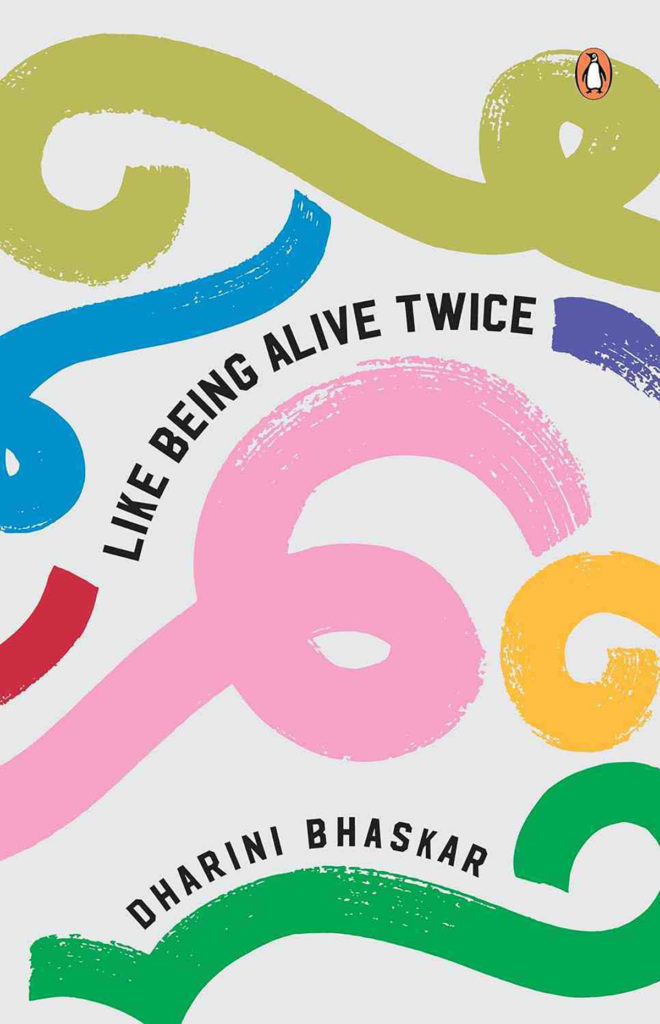
In other interviews, you’ve spoken about how this novel doesn’t feel dystopian to you, and I agree, in that the world we live in is already dystopian—a lot of what you’re doing is taking what’s happened or happening in the world around us just a little bit further. In your novel, there is a large emphasis on architectural spaces, on living spaces, and in urban planning. I was interested in why you chose that focus.
Thank you for pointing that out! It was something that I did want to dwell on. Especially in our larger cities, increasingly, we have cloistered spaces for people, places that are cut off—the gated communities that we know of, that a lot of us live in, that a lot of us have friends in. At the end of the day, they are gated—they are places that allow a certain amount of influx, but for limited times for specific purposes, and then the gates are up again. We have a world, increasingly, that’s walled in, and we have people living within the walls. And then we have people living outside the walls, and outside the walls, again, we have more segregation, we have more class distinctions, we have other kinds of walls that crop up.
This by no means is a dystopia that I have tried to build, because it is what we are living in right now. We possibly don’t even notice it all that much, because it’s become so much a part of our lived reality—it’s who we are, it’s what we’ve become, and we accept it. We live with it, and we make peace with it.
“We have a world, increasingly, that’s walled in, and we have people living within the walls. And then we have people living outside the walls, and outside the walls, again, we have more segregation, we have more class distinctions, we have other kinds of walls that crop up.”
It’s not a new phenomenon, because it’s been happening for over a decade now, if not longer. This is something that I did want to play with, as well as the idea of access: to what extent do we have access to these spaces, who has access to these spaces, and on what grounds do we decide the rules of access. If you want to rent a house today, even in today’s world, in the country that we live in today, there are lots of restrictions that are unspoken—or ones that are spoken of in a veiled manner, and sometimes not even veiled. The fact that if you are a single woman, it’s so much harder; if you belong to a certain caste or a certain community or a certain religious identity, if you belong to a certain state, again, it’s so much harder. So there is the whole question of who these spaces cater to, who has access to them, and to what extent we have enabled our systems to work this way, either through our silence or by being part of it. These were questions that did interest me. Inevitably, it spilled into the fact that the characters weave in and out of certain housing spaces based on the choices available to them, or the lack of choices available to them.
You spoke of how sometimes things are allowed to happen because of our complicity. A lot of the characters in your book belong to a certain class and interact with the world in a certain way because of their status in society. At the same time, Poppy’s mother mentions that in a surveillance state, whatever happens, women are going to be at the short end of the stick. The space that Poppy and her mother occupy in society was very interesting to me in how you explored both gender and class.
I was convinced that I did want to dwell on privilege; I did want to have the characters come from a space of a relative degree of privilege. When you come from a space of privilege, the concerns you have can be very different from, say, the concerns of someone who doesn’t come with the same degree of privilege. What also interested me was how privilege often makes you very blind to what’s going on around you, and it also makes you a bit too sure that you will not be impacted. You believe that you are safe because of your privilege; you believe that you can fend off the goings-on around you because of your privilege. There’s a certain degree of security, maybe even smugness, that comes with it. I felt that to a large extent Poppy’s mother was indicative of that. Poppy also, in her own way, comes from a similar place until things work against her.
I feel that that is something that needed to be spoken about, about how when you come from a space of privilege, you’d think that people would have the willingness to speak up and speak out, but in fact, the very opposite happens: privilege makes you smug. You refuse to speak because you believe that you are unassailable, that you will be untouched by whatever’s happening. Of course, it’s an illusion, it’s entirely false. That’s something that the novel wished to explore along the way.
“Privilege makes you smug.”
The other thing that Poppy’s mother does mention, and I think she’s quite aware of this, is that women have to shrink their lives—when the tide turns, inevitably, it’s women who will be impacted. I found that quite perceptive of her, given her tendency to block off everything that’s happening and instead concern herself with her own immediate existence. But I did feel that it was an important point to make, and I did feel that both Poppy and her had to come to grips with this.
The fact that women’s lives will be impacted the moment you have a force that is far-right, that is fascist, that is oppressive, is well-known; I’m not the first person to speak of it. There is a lot of literature on this, history stands testimony to it. I did want to bring it into my novel, because, especially today, so many leaders of the far-right, in Europe especially, are women, and they quote Simone De Beauvoir, they speak of feminism. So there is a tendency to believe that others will be impacted, but not women, and not women who come from a certain degree of privilege.
What I did want to foreground was that feminism and the far right can’t coexist—they’re actually antithetical to each other. At the end of the day, what is feminism? Feminism is an awareness that our stories as women are linked, that there isn’t a hierarchy, that each of us has a story that’s as valid as the others. The moment we have a rhetoric that suggests that a certain way of life is superior, or a certain kind of feminism is superior to every other, we are alienating a lot of women, and it becomes anti-feminist rhetoric. I did want to highlight the fact that increasingly, there is a tendency to believe that the far right will not hurt women. No, it’s women who will be impacted, and typically, what will get impacted is their reproductive rights. That’s where it begins. It doesn’t end there, but it certainly begins there.
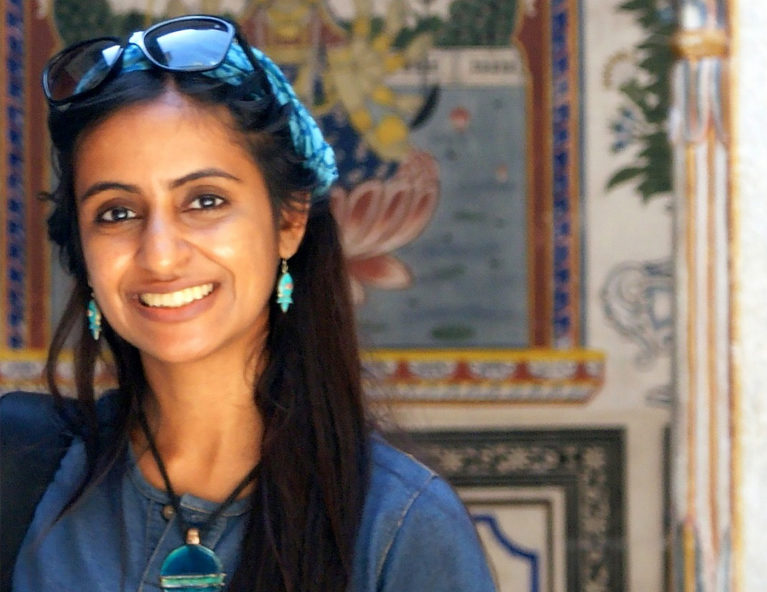
Your book delves into literature and art quite significantly. At one point, a character suggests that “A book is a self-contained thing” and Poppy responds, “Of course not, it springs out of the writer’s life—always.” Is that something you believe?
Personally, I actually sit a bit on the fence here! I think I’ve shifted politics here periodically. There have been times where I feel very strongly that a book springs out of a writer’s life, and therefore I feel very offended if I find out details of a writer’s life that don’t sit well with. The other part of me also believes very strongly that writing or art has a life of its own, and all writing can’t possibly spring from biography or autobiography, and therefore we have to detach the writer’s life and all his misdoings from his work (and god knows most writers have a history of many misdoings!). So there is a part of me that believes that very strongly, and there is another part of me that does believe that we have to be human beings of a certain caliber if we are to create art that is worthwhile and worthy. I’m still pulled in two directions and I don’t quite know where I stand yet, but I did find Poppy’s clarity about the issue—that writing always springs out of the writer’s life and therefore you can’t possibly read a writer if you don’t agree with the life choices he has made—I found that very reassuring, that she was this clear about it, because I’m not!
I love the play with patterns and colours on the book cover. What was the cover design process like?
I fell in love with the cover when I saw it. The artist, the visualiser, the person that put it all together is [Ahlawat] Gunjan. Gunjan and I have a long history of being colleagues in publishing. I’ve always loved how passionate he is about design and art, and when my first novel was out, he had predicted that he’d be designing the next cover. I’d laughed it off—I told him then it was wishful thinking, because we don’t really know if I’m writing a next book, and we don’t know if that book will go to Penguin (because he works at Penguin now). And the next thing I know, I did write another book, and as it happened it went to Penguin, and as it happened he was working there! I call him a prophet figure, because when he says something, it happens.
He has such a keen visual eye, and he played with the idea of multiple narratives and possibilities through brushstrokes, which I found so compelling and so beautiful. It would have been really easy for an artist to create a cover for this book that was entirely bleak and colourless, but he chose to play with colour because he felt that the idea of possibilities, I suppose, allowed for that. I love the way he played with the concepts embedded within the book to create this.
Did your experience working in publishing change or influence your approach to writing novels?
I think being an editor gave me a toolbox. I spent over a decade in publishing, and I still have a toe in the publishing world as a freelancer. What has been invaluable is the experience I’ve had with authors and with manuscripts, working on them and watching them grow, and learning how to work with text in a manner that is at once firm and gentle. I think that’s what editing asks for—a certain degree of gentleness, but also a certain degree of firmness. It’s a very fine balance. What those 10 years gave me was the ability to keep working at that skill. When my own book had to be worked on, I had a ready toolbox that I could dip into. To that extent it’s been invaluable, not so much in the writing process, but in the post-writing process.
“There is a tendency today to view the editor as this stop-and-go signal, who either greenlights a book or doesn’t. My experience across both sides of the process has been that the editor is the book’s biggest champion.”
There is a tendency today to view the editor as this stop-and-go signal, who either greenlights a book or doesn’t. My experience across both sides of the process has been that the editor is the book’s biggest champion. God knows most writers have huge moments of self-doubt and uncertainty—it’s the editor who stands by you, it’s the editor who allows a book to reach its full potential, it’s the editor who makes the book what it can be. So what it has also given me is the perspective to approach the editor with a certain degree of reverence, because without her this book wouldn’t be.




